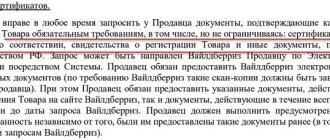Funds allocated by the state from the budget to autonomous and budgetary institutions can be spent only for certain purposes. They are determined according to a pre-drawn plan and are also under the strict control of supervisory authorities. Directing this money to other purposes is a gross offense. It is recognized as misuse of budget funds. Who is punished for such non-compliance with legislative norms, as well as what responsibility comes under the articles of the Code of Administrative Offenses of the Russian Federation and the Criminal Code of the Russian Federation for misuse, we will examine in this article.
What is misuse of budget funds?
Before delving into the understanding of the mentioned phrase, it should be remembered that any budgetary funds are accompanied by the principle of targeting, as well as a targeted nature. In other words, all money allocated from the budget is intended for specific purposes and recipients. This is enshrined in Article 38 of the Russian Budget Code. Consequently, a contradiction to these principles indicates inappropriate spending of funds from the budget.
Misuse of budget funds is their complete, as well as partial direction and expenditure for purposes that do not coincide with the conditions for their receipt, approved by at least one of the documents:
- Budget Law;
- Budget summary list;
- Budget estimate;
- Agreement on the provision of relevant subsidies;
- Various agreements, as well as other legal documents.
Thus, the offense consists of committing actions/inactions by the manager and recipient of funds from the budget, which led to a deviation from the goals previously defined in the documentation.
Targeted subsidies
The legality of using a targeted subsidy is checked based on the requirements of the BC and the content of the agreement on the provision of subsidies. In addition, spending must meet the requirements established by the Information on Operations with Targeted Subsidies and the target programs within which the funding is implemented.
When checking the target orientation, budget classification codes are used. As a rule, when approving the subsidization procedure, a condition is provided for the return of government funds used for other purposes.
Important! The subsidy can be transferred to the institution’s account to reimburse the account holder’s expenses if the latter spent his own funds on areas that should be covered by government funding. Accrual of interest under such circumstances is an income transaction. Therefore, such manipulations are not considered NIBS.
Types of non-targeted budget expenses.
Punishment for misuse of budget funds is applied if:
- Finance is allocated to unspecified expenses in accordance with planning for the reporting period;
- An unlawful money transfer was made from one budget classification item to another in order to cover expenses;
- Payments were made from budgets of other levels;
- Payments were made from the budget, although according to the plan extra-budgetary funds should be used;
- Paid for work, goods, services that are not related to the activities and specifics of the institution;
- The expenses of another legal entity are covered;
- Facilities under construction not from the list are financed, as well as those for which it is not planned;
- The conditions for the use and provision of subventions and subsidies have been violated;
- There was a replacement of budget sections and goals;
- The profit received from business activities is used contrary to the plan.
However, there are cases of subsidies being used for other purposes:
- Payments for services or work not specified in the terms of the agreement on the transfer of subsidies;
- Payment for services or work that were not performed;
- Payment for the maintenance of property if it does not belong to the enterprise.
Payment for pre-trip medical examination for an individual.
The essence of the dispute.
The Resolution of the AS UO dated March 1, 2019 No. F09-862/19 considered the application of the Federal Tax Service for the Kurgan Region to invalidate the submission of the Federal Tax Service for the Kurgan Region. During the inspection of the Federal Tax Service for the Kurgan Region, it was established that the Federal Tax Service for the Kurgan Region incurred expenses related to the execution of contracts for pre-trip and post-trip medical examinations of drivers concluded with a private person who does not have a license to carry out medical activities.
The court's position.
When considering the application, the court proceeded from the following. According to clause 3 of the Regulations on licensing of medical activities, approved by Decree of the Government of the Russian Federation of April 16, 2012 No. 291 “On licensing of medical activities” (hereinafter referred to as Regulation No. 291), licensed medical activities provide for the performance of works (services) according to the list approved by the specified resolution. This list includes services for medical examinations (pre-trip and post-trip).
Clause 1 of Regulation No. 291 stipulates that licenses are issued only to legal entities and individual entrepreneurs.
Meanwhile, the individual executor under the concluded contracts was not registered as an individual entrepreneur and did not have the appropriate license. When entering into a contractual relationship with this individual, the Federal Tax Service for the Kurgan Region did not check the existence of a license, although when concluding agreements and government contracts, certain requirements are imposed on the direct providers of services, failure to comply with which may result in illegal admission to the trip of drivers financed from the federal budget. , with compensation for possible negative consequences from the federal budget.
Thus, the Federal Tax Service in the Kurgan Region, at the expense of the federal budget, paid expenses under contracts for pre-trip and post-trip medical examinations of drivers, concluded with a private person who does not have the right to engage in this type of activity due to the lack of a license to carry out medical activities.
Who is responsible for the misuse of budget funds?
In case of any violation of the law, there is always a “last person” who is fully responsible for the actions taken, as well as inactions.
Who is this in autonomous and budgetary institutions?
Firstly, the enterprise itself that has committed misuse of budget funds is recognized as a violator. In such cases, organizations may be subject to penalties in the form of fines, as well as suspension of activities for a certain period.
Secondly, the officials who allowed this fact to occur bear responsibility. As a rule, they are managers, their deputies and other employees who have the right to sign financial documentation.
In other words, the punishment will be borne by the employee of the organization whose signature was on the documents that served as the basis for misappropriation.
Subsidies for the implementation of state or municipal tasks
Budgetary institutions may be allocated a subsidy to complete the assigned task within a specified period of time. Funds are transferred according to approved schedules. If the task is not completed, the balance will be returned. Amounts are determined according to final reports. In this case, the subsidy is prohibited from being used for capital investments.
If the task is completed, the manager can avoid punishment for improper spending. But if the designated tasks are not achieved, the culprit will be fined on the basis of Art. 15.15.5-1 Code of Administrative Offences.
Types of liability for misuse of budget funds.
In turn, officials who misuse budget funds may bear both administrative and criminal liability in accordance with the articles of the Code of Administrative Offenses of the Russian Federation and the Criminal Code of the Russian Federation.
It is worth noting that the main criterion distinguishing one type of liability from another is the amount of money spent for other purposes. If it exceeds 1,500,000 rubles, then the act becomes criminally punishable. In case of inappropriate spending in smaller amounts, individuals are punished with an administrative fine.
So, according to Article 15.14 of the Code of Administrative Offences, the following are punishable for misuse of budget funds:
Officials:
- Disqualification for 1 – 3 years;
- Fine in the amount of 20 - 50 thousand rubles;
Legal entities:
- A fine of 5–25% of the amount spent for other purposes;
If inappropriate expenses exceed the permissible administrative limit, then Article No. 285 of the Criminal Code of the Russian Federation is already applied. 1. Criminal punishment is borne only by officials, and it can be expressed in the following forms:
For officials with expenses not intended for the intended purpose from 1.5 to 7 million rubles:
- Fine 100 – 300 thousand rubles;
- Fine in the amount of the offender’s salary for 1-2 years;
- Forced labor not exceeding 2 years;
- Arrest up to six months;
- Imprisonment for no more than 2 years;
For a group of officials, as well as in case of misuse of more than 7 million rubles:
- Fine 200 – 500 thousand rubles;
- Fine in the amount of the offender’s salary for 1 – 3 years;
- Forced labor for no more than 5 years;
- Imprisonment for no more than 5 years;
Compulsory medical insurance funds
Compulsory health insurance is a special system that functions to ensure the right of citizens to receive compulsory medical care. The most common examples of unlawful waste of compulsory medical insurance funds are paying for the cost of services that are not covered by the relevant territorial programs, or making expenses that are not included in the structure of reimbursement tariffs for the cost of medical care.
The correct use of government funding is verified based on the data specified in regulatory documents, estimates, and tariffs. The documentation, in turn, must meet the criteria established by Federal Law No. 326.
Additional consequences.
The fines applied to the violator, as well as the other responsibilities listed above, are not the only negative result for the misuse of budget funds. However, additional consequences may occur:
- The violator is deprived of financial powers and transferred to another authorized person;
- Reduction in budget funding for a specific region or institution;
- Collection of erroneously provided funds from the recipient, as well as interest for their illegal use.
- Additional financial checks to identify violations.
Appealing the findings of regulatory services
Often, the position of the inspected institution does not coincide with the opinion of the authorized supervisory authorities on the issue of the legality of spending funds. Challenging the conclusions of the control service is allowed both pre-trial and directly in court. The first is usually prescribed in regulations governing the activities of financial supervisory authorities.
In particular, the inspected organization may submit written objections to the decisions of the regulatory services no later than 5 days (working days) from the date of receipt of the conclusion. In its application, the institution must indicate the specific page of the act with which it does not agree. In addition, the objection cites articles of legislation that prove the organization is right. Comments can also be presented in a table. One column will state the controllers' findings, and the other will state the position of the audited organization. If this does not have an effect, the case will be dealt with in court.
Appealing decisions for misuse of budget funds.
As a rule, most financial violations of the legislation of the Russian Federation, including liability for misuse of budget funds, are imposed on the basis of a court decision. At the same time, the person guilty of “embezzlement” has the right to appeal the decision made on him.
In turn, judicial practice includes many cases when the decision was reviewed and changed in favor of the accused. The most successful groups of cases are:
Lack of intent.
Although such a fact as the presence of intent in the actions committed is rarely taken into account during proceedings on the misuse of the budget, this feature plays an important role. For example, liability under Article 15. 14 of the Code of Administrative Offenses is characterized by intentional guilt. In other words, the person committing the unlawful act must be aware of the commission of the offense for inappropriate expenses. If there is no evidence confirming these circumstances, then liability under this article is impossible.
Exemption from liability of a number of officials.
In many cases, in addition to the head of the organization, the chief accountant is also brought in for committing financial offenses. Since this official has the right to sign financial documents. However, the presence of a signature from both the chief accountant and another authorized person does not always clearly prove the guilt of the person who signed the payment papers. If the organization’s Charter clearly states the personal responsibility of the director for misuse of budget funds or other non-compliance with budget laws, then he is responsible for violations in this area. In addition, payment documents are usually preceded by the conclusion of a contract or agreement, which is signed by the head of the enterprise.
KOSGU
In accordance with Art. 18, clause 1 of the BC, budget classification is used for the preparation and subsequent execution of income and expense items. It is presented in the form of a grouping of revenues, costs and sources of covering deficits. It also includes a classification for operations in the public administration sector (KOSGU). The procedure for its application is approved by the Ministry of Finance. In particular, for financial departments, lists of expenses are established that must be allocated to certain sub-articles and articles of KOSGU.
The grouping of operations in this classification is carried out depending on their content. Moreover, each article and subarticle contains a brief description of the process. As for costs, operations in them are characterized by lists of areas for spending finances. For effective planning and proper execution of the budget, issues related to the reflection of costs under articles or subarticles of KOSGU can be regulated by the budget estimate, state assignment, methodological instructions (recommendations) of the manager and other documents that act as the basis for receiving the corresponding revenue.
The inclusion of material assets in the corresponding group of non-financial assets (inventories or fixed assets) is within the competence of the budgetary institution. It makes one decision or another, guided by instruction No. 157n. This takes into account the purpose of the valuables and the procedure for their use.



